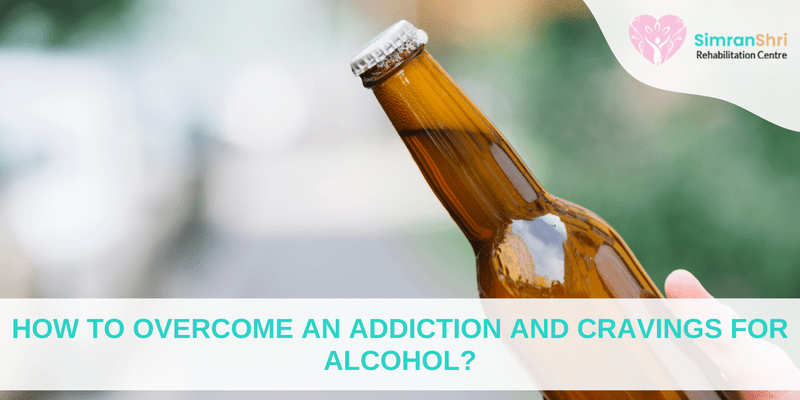

Addiction isn't a personality flaw or a sign of weakness, anyone can fall prey to it, and it takes more than mere willpower to overcome it. Abusing illegal or prescription medication can alter the brain function and structure, resulting in intense cravings, thus, making recovery seem impossible. However, no matter how bad your situation appears or how many times you've tried and failed before, breaking an addiction is always doable. With individualised treatment and support from loved ones, change is always possible.
You have come a long way if you've been wondering about how to overcome an addiction. Taking charge of one’s recovery makes the treatment more effective. While seeking a de-addiction program from a rehabilitation centre is the best choice, this article will equip you with the tips to enhance your or your loved one’s addiction recovery.

Cravings can't always be prevented, so you'll have to discover a strategy that best works for you to deal with them:
Engage in a mind-altering activity. Go on a hike, read, go to the movies, see friends, dive in a hobby, or get some exercise. The impulses will fade away once you're engaged in something else.
Talk it over with someone. Talk to your friends or family about it when you have a craving. Talking can be beneficial when it comes to pinpointing the source of cravings. Furthermore, discussing your cravings might help you release and lessen the feeling and reestablish honesty in your relationship. Cravings are nothing to be ashamed of. De-Addiction Treatment too focuses on reaching the root cause of cravings to deal with addictions effectively.
Your thoughts should be challenged and changed. Many people tend to remember only the good aspects of a substance when craving it and completely ignore the bad effects. As a result, it may be beneficial to remind yourself that giving in to the craving will not make you feel better and fail to break an addiction. It can be good to write down these effects on a tiny card that you carry with you.
Urge Surfing. Many people try fighting their urges by resorting to force. Some urges, though, are too powerful to be ignored. When this happens, staying with the impulse until it passes can be beneficial. This method is known as urge surfing. Consider yourself a surfer who will ride the wave of your drug addiction until it crests, breaks, and transforms into less strong, frothy surf. When you go for a ride, you'll notice that the craving fades more quickly than you expect if you don't try to fight it, condemn it, or ignore it.
However, if you are trying to quit alcohol, it is recommended to seek guidance before abruptly stopping intake. Withdrawal symptoms are often severe and unmanageable by self, a medically assisted Withdrawal Technique in De-Addiction, is necessary to break the physical dependence.
When you learn that someone you care about has a drug addiction, you may feel shocked, worried, and angry. Due to these strong emotions, communicating with a drug user can be even more challenging. As a result, communicating when you're sober, calm, and free of distractions is critical. Offer your help and support without being judgmental.
Clearly express your worries. Clearly express your concern by stating previous experiences of your loved one’s behaviour during intoxication. Have an insightful discussion using the “I statement”, i.e., instead of using a tone of accusatory language, try and focus on how you feel when they are intoxicated.
Listen. Even if you disagree with them, take the time to listen to what they have to say rather than arguing or contradicting them. Your loved one will regard you as supportive and someone they can confide in if they feel heard. There could be other issues that your loved one is concealing with drug intake. The occurrence of two or more mental health problems requires a dual diagnosis treatment to treat both effectively.
Be ready for refusal. Your loved one may act defensive or enraged and refute their drug use. When faced with their behaviour, many people feel ashamed and deny they have a problem. Don't quarrel with them; instead, come back to it later. A simple conversation is never enough to persuade someone to get help. You'll have to keep addressing the problem patiently to agree. Once they are comfortable with you and admit their problems, you can begin a treatment to break an addiction.
Avoid lecturing, bribing, threatening, or punishing the person. Getting angry or making emotional pleas will almost certainly increase the user's guilt and strengthen their need to use drugs.